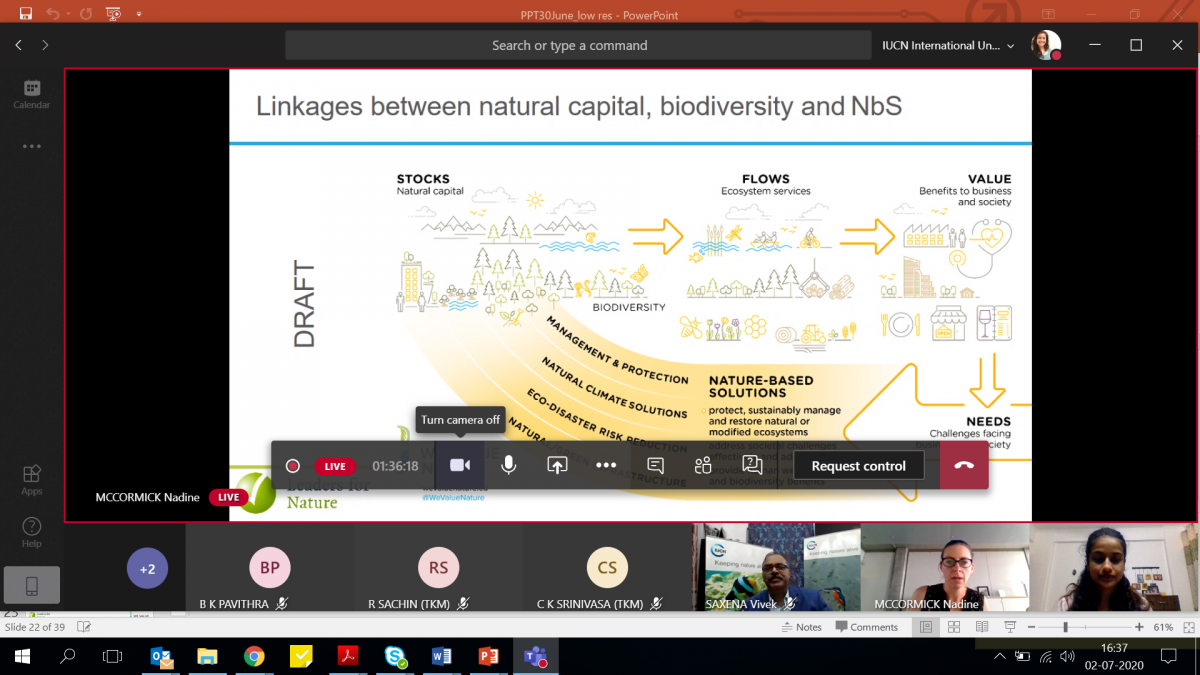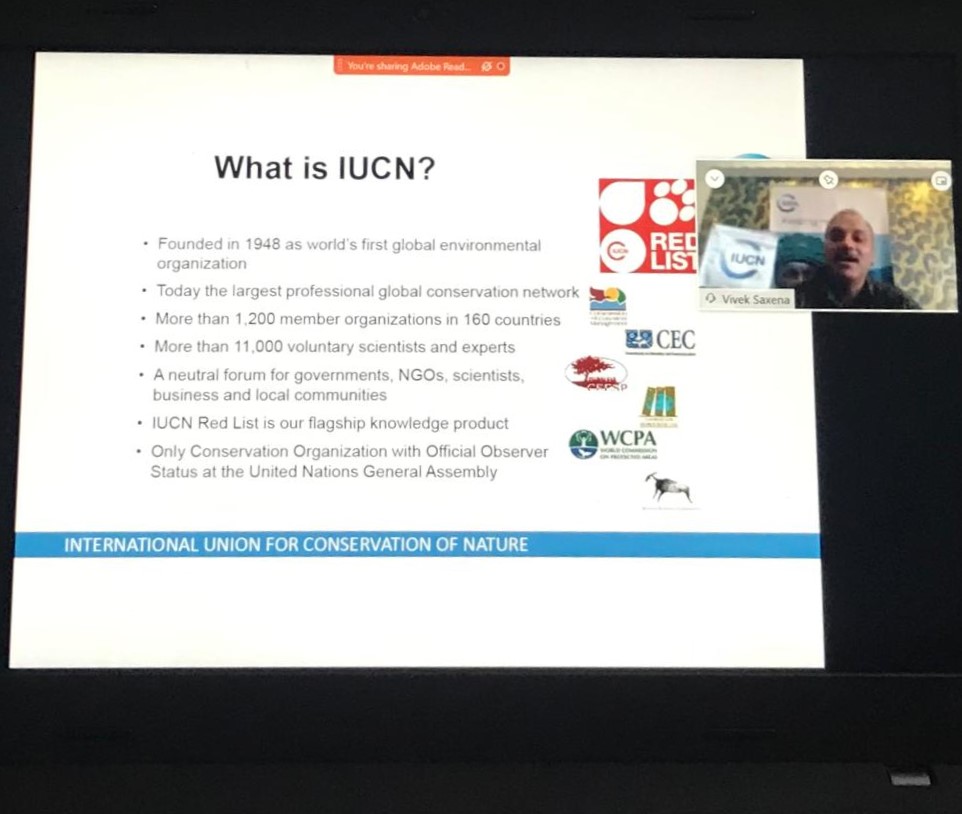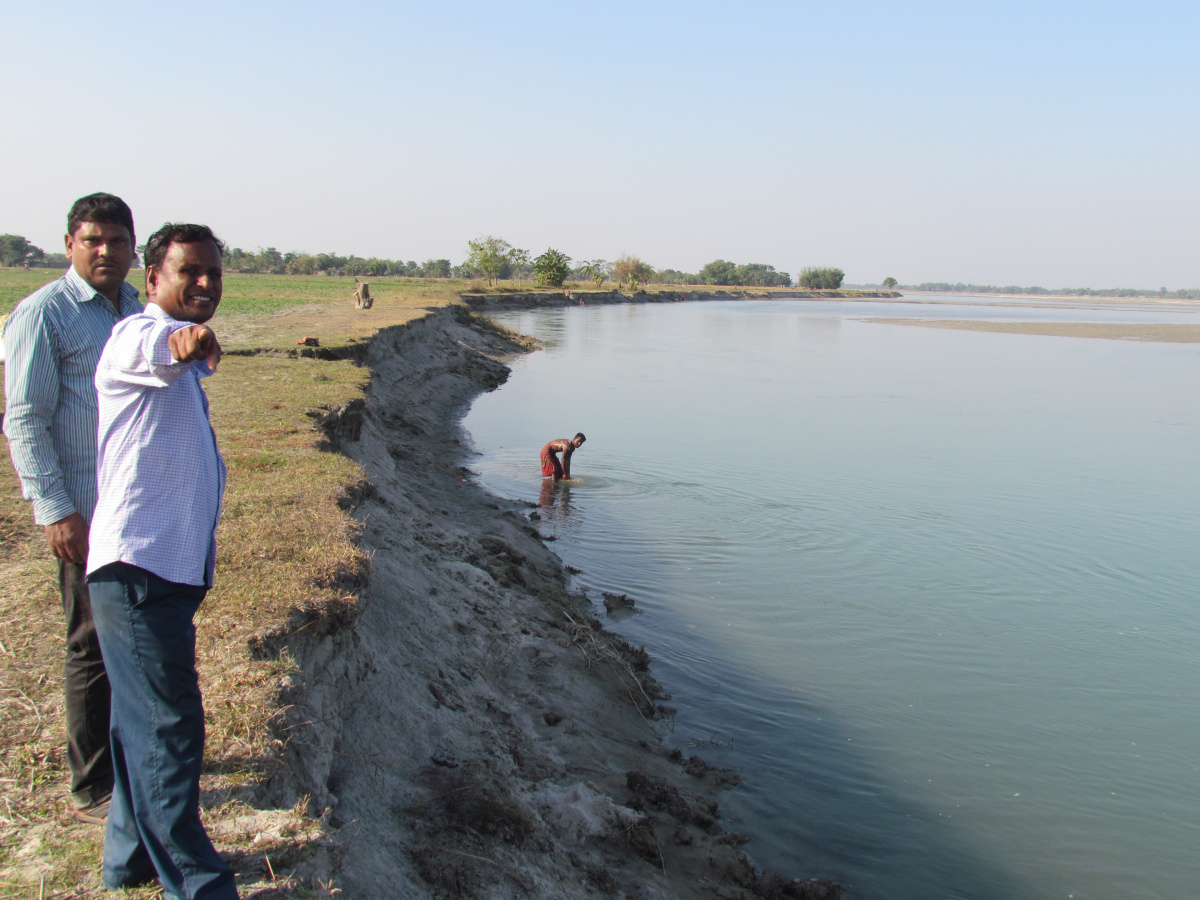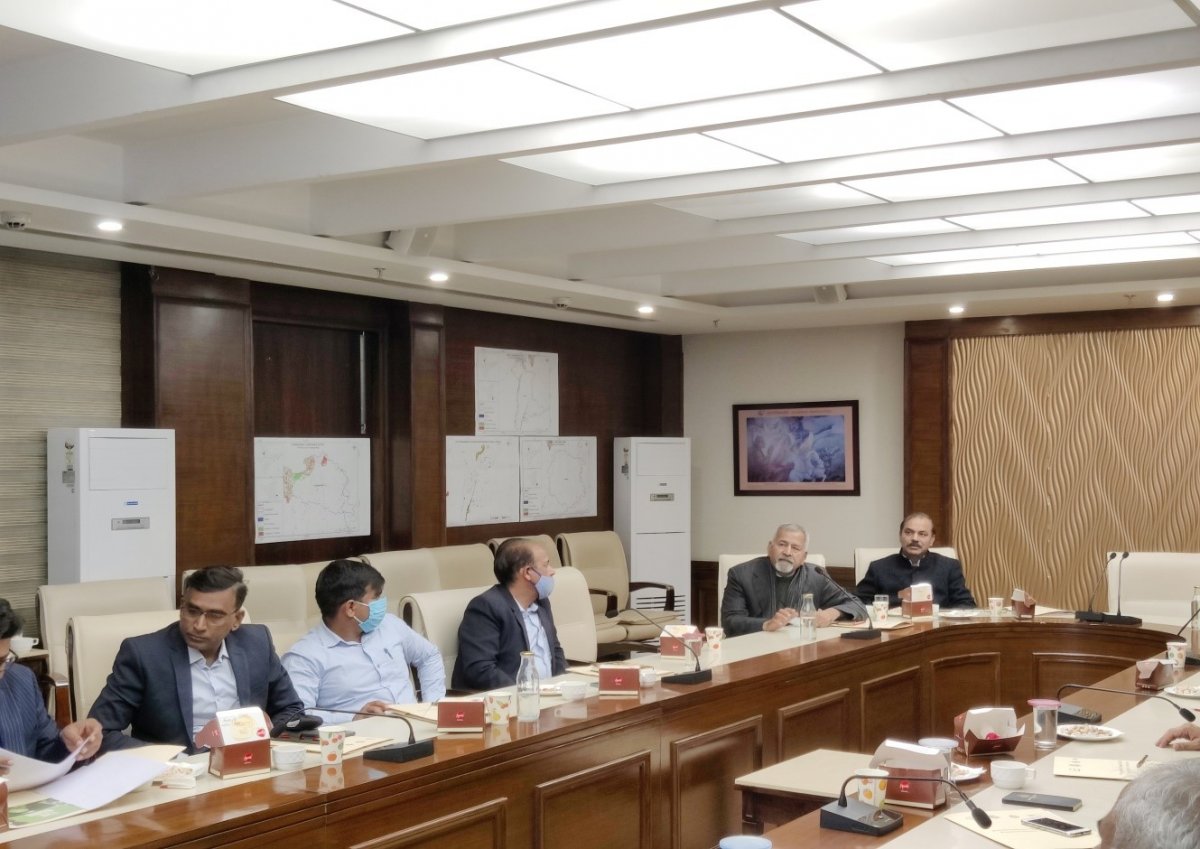IUCN India’s Leaders for Nature Virtual session on “Natural Capital” for Toyota Kirloskar Motor Pvt. Ltd.
A virtual session on Natural Capital for the supply chain of Toyota Kirloskar Motor Private Limited was conducted on 2nd July 2020.
As many businesses are now recognising the relationship between nature and businesses along with risks and opportunities associated with it, focus has shifted towards building a sustainable business structure including supply chain. Over last few years, it has become increasingly evident that natural capital crisis is a business crisis. A number of reports being published by World Business Council for Sustainable Development, CII, WEF, the Edelman Trust Barometer highlighting the risks. The WEF Global Risk Report 2020, for the first time in its history, found the five most likely long-term risks are all environmental and the top three all relate to climate change. The environmental risks like climate action failure, biodiversity loss, human-made environmental disasters, extreme weathers and natural disasters are becoming increasingly obvious.
June month is celebrated as Environment month in the organization and many activities are promoted among internal and external stakeholders to sensitize them towards Environment. Toyota India is already way ahead in sustainability efforts as oppose to many of its competitors and enjoys broader scope by also focussing on sustainable supply chain. In this regards, a session was conducted on “Natural Capital” which was inaugurated by Mr. Raju Bhauso Ketkale, Senior Vice President & Environment Director followed by views shared by Dr. Vivek Saxena, Country Representative, IUCN India, on the importance of integrating natural capital into operations. Ms. Aanchal Saxena, Coordinator, Leaders for Nature, IUCN India with Ms. Nadine Mccormick, Programme Officer, IUCN Global Business and Biodiversity Program conducted the session which primarily focussed on acquainting the concept of natural capital, impacts and dependencies of businesses on biodiversity, its importance for supply chain sustainability and a way forward. The session was attended by 540 individuals across the supply chain of Toyota.
The session shared knowledge and highlighted "often hidden" linkages between nature and businesses and the need for corporates to incorporate natural capital into strategic decisions. The content from WeValueNature resource toolkit on application of the Natural Capital Protocol was used in the session and included various business cases, key facts, news feed, interactive exercises.
Nature is essential to the future of the planet as well as for the business, but natural resources are being used up faster than the Earth can replace them. Such sessions are a way forward to promote a better understanding of linkages and a sustainable way forward for the corporates.





